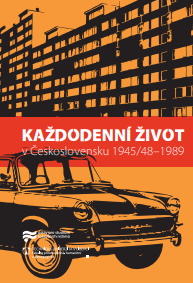Každodennost v Československu v období tzv. normalizace
Everyday life in Czechoslovakia during the so called normalization
Author(s): Jan Rychlík
Subject(s): Human Rights and Humanitarian Law, Political history, Social history, WW II and following years (1940 - 1949), Post-War period (1950 - 1989), History of Communism, Socio-Economic Research
Published by: Ústav pro studium totalitních režimů
Keywords: Czechoslovakia; everyday life; 50s; 60s; normalization; communism; human rights; employment;
Summary/Abstract: After 1989 the research of communism focused moreover on repressions in the fifties and human rights violation during the so called normalization. In fact, most people from the middle and lower classes, factory workers, collective farmers and lower engineering personnel did not feel the lack of essential liberties. They did not discuss or comment politics in public and whatever they said in private, the regime really did not care. Most of the Czechoslovak citizens did not openly act against the communist regime: they were also not willing to support the regime in case of crisis, which became obvious during November 1989. They were willing to tolerate it as a necessary evil. The regime made an attempt to pacify masses with generous social policy, which aspired to make the society politically passive in spite of ostentatious request for its active role in politics. The citizens were asked to care mainly about themselves and their family. Social policy played a fundamental role in the policy line of the communist party during the so called normalization. The main effort of the party was to ensure full employment as the foundation of the social stability. The social interventions of the state were presented as the results of the socialist state’s care for people and especially young families.
Book: Každodenní život v Československu 1945/48-1989
- Page Range: 34-47
- Page Count: 14
- Publication Year: 2015
- Language: Czech
- Content File-PDF

